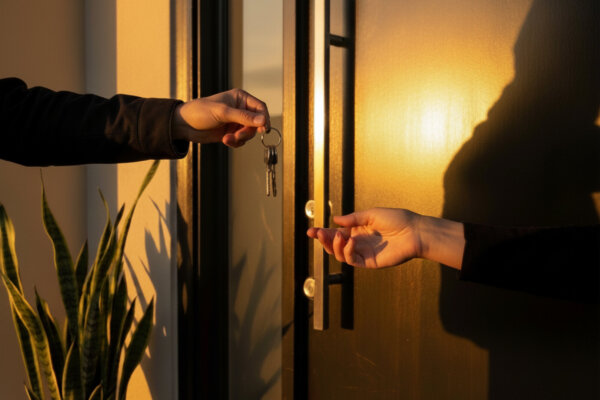5 Smart Ways to Boost Your Home’s Equity

Home equity is the percentage of your home’s total value that you own. It is calculated by subtracting your mortgage balance from your home’s current value. So, let’s say your mortgage balance is $500,000 and the current value of your home is $700,000. That means: $700,000 – $500,000 = $200,000 in equity. In other words, the more equity your home has, the better for your wallet. You can liquidate equity into cash should you ever need it or when you’re ready to sell your house.
There are two main ways to build equity, and that’s by either increasing your property’s value or decreasing your mortgage balance. Below, find five ways to build home equity that fall under these two methods. That said, keep in mind that every situation is different, so ensure you consult with your lender to best advise you on which option will work best for you.
5 ways to build home equity
1. Give a bigger down payment
When you first purchase your home, your equity is essentially your down payment. So if you put a higher percentage down, you’ll have higher equity. However, putting down a larger down payment towards your new home may mean that it’ll take longer for you to save up for it. And, although putting down a bigger chunk of cash will boost your home’s equity, it’s even more important to ensure you’ll still have enough money after closing to cover emergencies and other necessary life and home expenses.
2. Pay more money toward your mortgage
As you pay your mortgage every month, part of the money goes toward principal, and part of it goes toward interest. To help build up your equity faster, you can give extra payments toward the principal each month. Here are a couple of tips on how to do it:
Use extra cash—If you receive additional lump sums of money, such as through work bonuses, inheritances, tax refunds, or other unexpected sources, take that money and put it towards paying down your mortgage. Lenders can also often recalculate your mortgage payment based on the lower balance.
Give biweekly payments—Mortgage payments are usually once a month, which equals 12 payments per year. If instead, you switch to making payments every two weeks, by the end of the year, you’ll have made 13 payments. It may not seem like a big deal, but that one extra payment per year can make a big difference over the course of a 30-year mortgage. Pro tip: If you go the bi-weekly payment route, check that your lender doesn’t charge you extra processing fees for the twice-monthly payments.
3. Go for a shorter-term loan
Another way to build home equity faster is by taking out a 15-year mortgage instead of the typical 30-year mortgage. You’ll have a lower interest rate, so more of your mortgage dollars will be allocated towards paying down the principal. If you already have a 30-year mortgage, you can refinance your loan. Keep in mind that if you choose this option, your monthly mortgage would be much higher. And for that reason, qualifying for a shorter-term mortgage might be a bit trickier.
4. Give your house some TLC
If you have the resources for it (not to mention the emotional energy), making home upgrades and improvements is a great way to up the home’s value and in turn build equity. This, however, applies to more significant (and therefore more costly) improvements such as a kitchen remodel or adding a bathroom. So ensure that it makes financial sense for your situation and that it will indeed add value before deciding to make improvements. A local real estate agent can help you figure out what types of renovations will increase the home’s value.
5. Wait for your home’s value to go up
Letting your home build equity through appreciation is another way to go, but it is kind of a waiting game. Your home can appreciate quickly, or it can take some time depending on how the market is doing. If home prices go up, that’s great news for you and your equity. And conversely, if home prices go down, you may see your equity decrease as well. This is one aspect you don’t have much control over, but it’s good to be aware of as a homeowner. You can keep an eye on your home’s value by using online home price estimators or hiring an appraiser.


